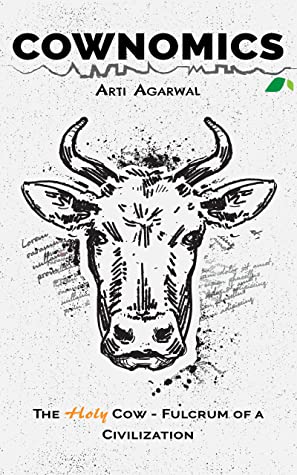Cownomics by Arti Agarwal - Review by Abhishek Desikan
Cownomics is a stimulating read on the importance of the Cow in Indian civilization and the need to re-center our society around the Cow. Arti Agarwal provides a concise research-based summary of the challenges in today’s world due to meat consumption and the ecosystem enabling it.
The Cow has been worshipped and revered since the Vedic times in India. Its utility and impact on the wellbeing of family and society are immeasurable. Hence, it is bewildering to realize that such a society is now one of the leading exporters of beef in the world. The author painstakingly details the root cause of this degeneration in this book.
From the Cow being a sentient being, to the carbon footprint due to the cattle and dairy industry, the economic and environmental cost to produce the meat that we consume, the poisoning of our food, air, soil, and water as a result of harmful agricultural practices, the clearing of the rainforests, the exploitation of animals by the food and leather industry and the immeasurable suffering caused, and the cost to human life due to the working conditions, etc., we are presented a barrage of sobering facts which get mind-numbing after a point. The scale at which we exploit natural resources has reached stratospheric levels and will cause irreversible damage unless we drastically change our anything-for-profit approach.
The author also explains the remarkable characteristics of the Cow and how everything it generates can be used for fertilizers, biogas, producing clean energy, medicinal purposes, etc. With ‘Cownomics,’ she posits a framework that can be developed to live a sustainable, humane, ethical, and environmentally conscious way of life centered around the Cow.
One interesting aspect was the author’s coinage of the term ‘karmic footprint’ of an activity, which she defines as the measure of the amount of violence, suffering, or pain that action has caused to living beings. Including the Karmic footprint in our cost-benefit analysis would make us re-think many of our existing systems.
A thought-provoking read on the urgent need to change our habits and, more importantly, our approach to life itself if we are to have any hope of sustaining on this planet.

Originally published here.